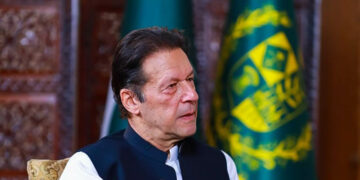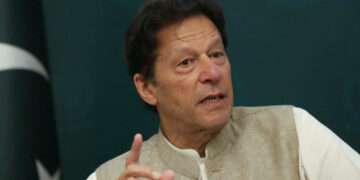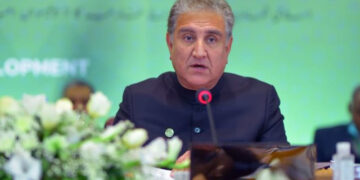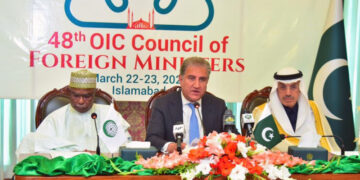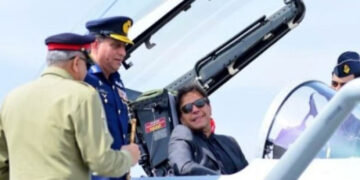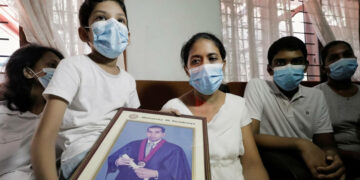Outlining the arguments he will be making before the inquiry commission, PTI counsel Abdul Hafeez Pirzada again accused the ruling PML-N of usurping the popular mandate in the 2013 general elections.
[contentblock id=1 img=adsense.png]
On June 22, the three-man inquiry commission headed by Chief Justice Nasir-ul-Mulk had asked the counsel representing various political parties, as well as the Election Commission of Pakistan (ECP), to submit a synopsis of the arguments they intended to make before the commission during the last leg of hearing.

In addition to the synopsis, the PTI also submitted a copy of the Memorandum of Understanding (MoU) signed between PML-N and the PTI on April 1, 2015, which led to the promulgation of the General Elections 2013 Inquiry Commission Ordinance 2015. On June 19, the commission had asked the legal counsel representing the parties to provide a copy of the MoU. In the synopsis, the PTI has alleged that true mandate it received from the electorate was illegally manipulated and that actual results varied from the officially notified and disputed results. The architects of the plan to manipulate the elections were obviously the beneficiaries thereof, which included the PML-N, its supporters, accomplices, associates and cohorts, the PTI maintains.
[contentblock id=2 img=gcb.png]
It argued that though other political parties and persons may also have been part of this “plan or design”, there also appeared to be an element of quid pro quo between certain political parties. The PTI perceives that the plan involving various elements – the underlying objective of which was to procure as many votes and seats as possible in Punjab to secure a majority in the National Assembly – was achieved through various unlawful means. It alleged that by co-opting and colluding with the ECP; provincial, regional and district election commissioners; returning officers and presiding officers, they were able to manipulate the bureaucracy and election machinery.
Read More: Imran Khan Offers Re-Election to Parties and ECP
This objective was obviously extended to Balochistan, both for the national and the provincial assembly, as the polls in Balochistan were a farce, it maintained. The process of bringing in MNAs and MPAs was not electoral but selective, the PTI alleged, adding the evidence placed on record shows a concerted plan to manipulate the results of the last general elections, particularly in Punjab, by the PML-N. The outline said that PML-N succeeded in its designs, receiving 92 per cent of all the seats it contested in the National Assembly. The highest percentage of extra ballot papers had been printed for constituencies in Punjab and some of the constituencies with the largest number of Form 15 missing were also from Punjab, the outline stressed.
[contentblock id=3 img=adsense.png]
Referring to the testimony of former caretaker chief minister Najam Sethi, it alleged that there was no independent and objective caretaker government in the Punjab, which collapsed, disintegrated and disappeared. In Balochistan, even a caretaker cabinet was not formed. The ECP was also not spared as the PTI pointed out that despite being bound to remain neutral and equidistant from all political parties, its demeanour in proceedings before the commission turned out to be heavily biased, which created difficulties, if not impediments, in bringing relevant material on the record. The evidence before the commission proves that the chief election commissioner and the four members of the ECP intentionally failed to discharge their constitutional duty and obligation to conduct the elections fairly and impartially, the outline claimed.



